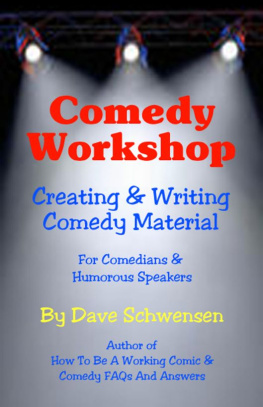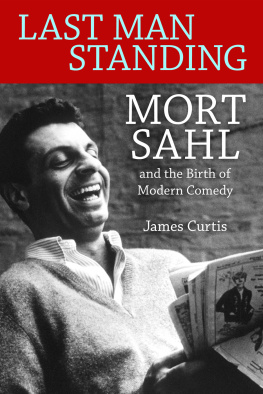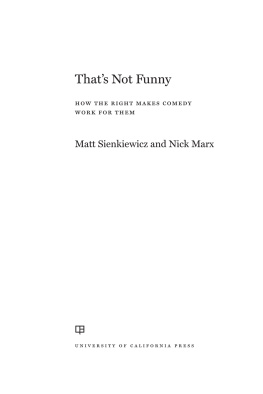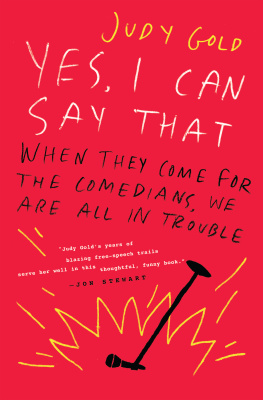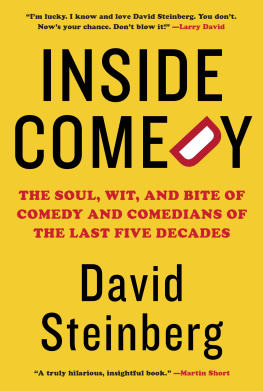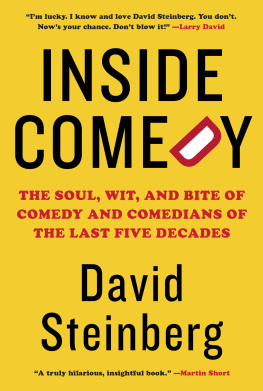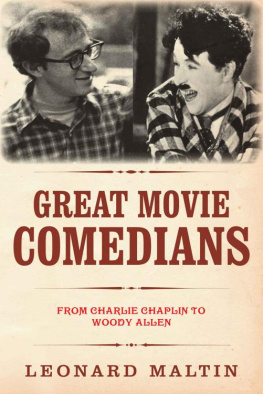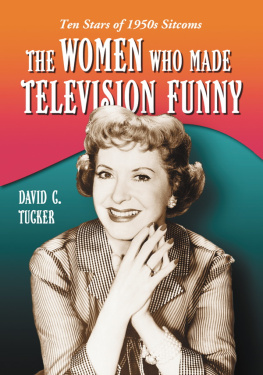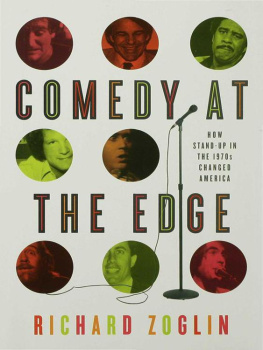Gerald Nachman - Seriously funny : the rebel comedians of the 1950s and 1960s
Here you can read online Gerald Nachman - Seriously funny : the rebel comedians of the 1950s and 1960s full text of the book (entire story) in english for free. Download pdf and epub, get meaning, cover and reviews about this ebook. City: New York, year: 2003, publisher: Pantheon Books, genre: Detective and thriller. Description of the work, (preface) as well as reviews are available. Best literature library LitArk.com created for fans of good reading and offers a wide selection of genres:
Romance novel
Science fiction
Adventure
Detective
Science
History
Home and family
Prose
Art
Politics
Computer
Non-fiction
Religion
Business
Children
Humor
Choose a favorite category and find really read worthwhile books. Enjoy immersion in the world of imagination, feel the emotions of the characters or learn something new for yourself, make an fascinating discovery.

- Book:Seriously funny : the rebel comedians of the 1950s and 1960s
- Author:
- Publisher:Pantheon Books
- Genre:
- Year:2003
- City:New York
- Rating:5 / 5
- Favourites:Add to favourites
- Your mark:
Seriously funny : the rebel comedians of the 1950s and 1960s: summary, description and annotation
We offer to read an annotation, description, summary or preface (depends on what the author of the book "Seriously funny : the rebel comedians of the 1950s and 1960s" wrote himself). If you haven't found the necessary information about the book — write in the comments, we will try to find it.
Abstract: The comedians of the 1950s and 1960s were a totally different breed of relevant, revolutionary performer from any that came before or after, comics whose humor did much more than pry guffaws out of audiences. Gerald Nachman presents the stories of the groundbreaking comedy stars of those years, each one a cultural harbinger: - Mort Sahl, of a new political cynicism - Lenny Bruce, of the sexual, drug, and language revolution - Dick Gregory, of racial unrest - Bill Cosby and Godfrey Cambridge, of racial harmony - Phyllis Diller, of housewifely complaint - Mike Nichols & Elaine May and Woody Allen, of self-analytical angst and a rearrangement of male-female relations - Stan Freberg and Bob Newhart, of encroaching, pervasive pop media manipulation and, in the case of Bob Elliott & Ray Goulding, of the banalities of broadcasting - Mel Brooks, of the Yiddishization of American comedy - Sid Caesar, of a new awareness of the satirical possibilities of television - Joan Rivers, of the obsessive craving for celebrity gossip and of a latent bitchy sensibility - Tom Lehrer, of the inane, hypocritical, mawkishly sentimental nature of hallowed American folkways and, in the case of the Smothers Brothers, of overly revered folk songs and folklore - Steve Allen, of the late-night talk show as a force in American comedy - David Frye and Vaughn Meader, of the merger of showbiz and politics and, along with Will Jordan, of stretching the boundaries of mimicry - Shelley Berman, of a generation of obsessively self-confessional humor - Jonathan Winters and Jean Shepherd, of the daring new free-form improvisational comedy and of a sardonically updated view of Midwestern archetypes - Ernie Kovacs, of surreal visual effects and the unbounded vistas of video Taken together, they made up the faculty of a new school of vigorous, socially aware satire, a vibrant group of voices that reigned from approximately 1953 to 1965. Nachman shines a flashlight into the corners of these comedians chaotic and often troubled lives, illuminating their genius as well as their demons, damaged souls, and desperate drive. His exhaustive research and intimate interviews reveal characters that are intriguing and all too human, full of rich stories, confessions, regrets, and traumas. Seriously Funny is at once a dazzling cultural history and a joyous celebration of an extraordinary era in American comedy. From the Hardcover edition
Gerald Nachman: author's other books
Who wrote Seriously funny : the rebel comedians of the 1950s and 1960s? Find out the surname, the name of the author of the book and a list of all author's works by series.

